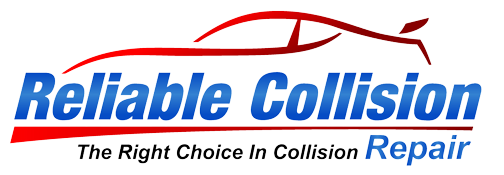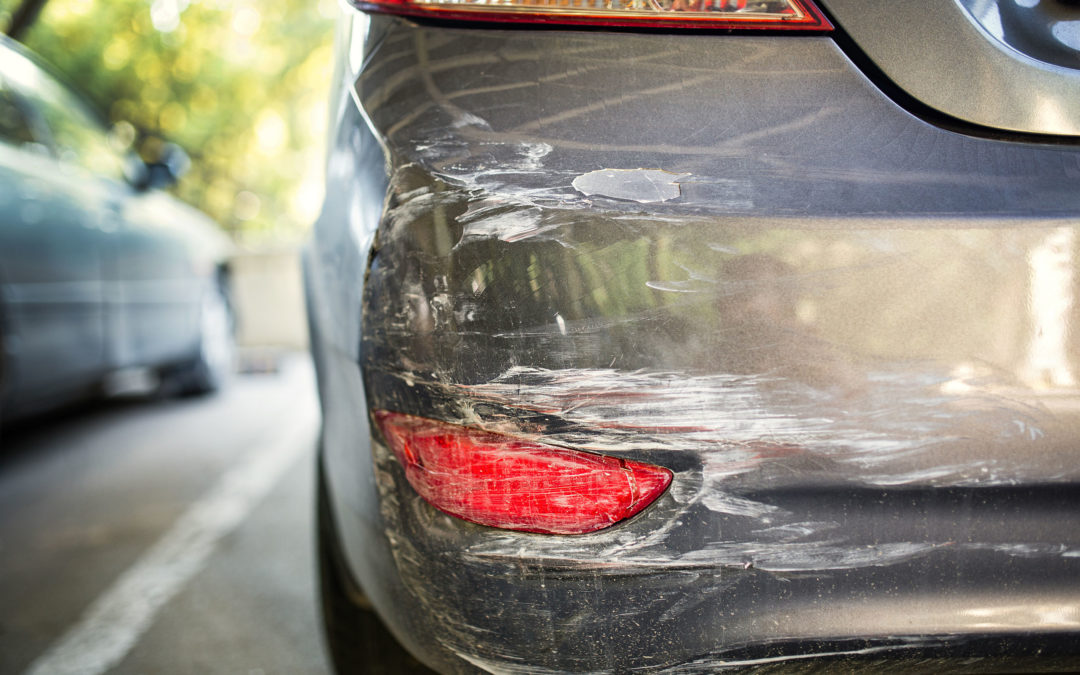When you’re planning a road trip, your list of places to visit might include national parks, museums, amusement parks, and other attractions, but not the autobody repair shop. But with all of the extra driving that comes with the spring and summer travel season, minor accidents are more likely to happen.
In the packed parking lot of an amusement park, you might find yourself on more of an emotional roller coaster when you return to find a dent or scrape on your vehicle – especially if you’re far from home. But as long as the damage is minor and your vehicle is safe to drive, here’s what you should do if you wind up in a small accident when traveling.
Before any long trip, you should make sure your fluids are topped off, your tire pressure is correct, and that your vehicle is in tip-top shape. You should also make sure your policy includes collision, towing, and rental coverage. If it does not, call your company to discuss out-of-state coverage options. Skipping this step before your trip could leave you fully responsible for all of the costs associated with the collision.
Even when all of those bases are covered, accidents can still happen so be sure to follow these steps below:
1. Keep Calm & Make Sure No One is Hurt
When you’re in an accident, it’s important to stay calm no matter where you might be. It’s very easy to get anxious or flustered, especially when you’re on a trip, but taking a breath and making sure you take all of the necessary steps will make your life much easier.
And of course, make sure no one is hurt or needs medical attention. If someone is injured, call 9-1-1 if you are in the U.S. or the appropriate emergency number if you are outside the U.S.
2. File a Police Report
Filing a police report after an accident is a requirement in most states. Although the damage may be minor, you could seriously regret skipping this step. Make sure to keep any paperwork that is given to you by the police or other local authorities. You may need them later when dealing with the insurance company.
3. Document The Accident
Make sure you take lots and lots of pictures of both vehicles and the location of the accident. It is also important to write down your version of events. Be sure to take down the other driver’s contact info including license plate number as well as vehicle make and model. If there are witnesses, take down their contact information, too. It is better to have all of this info and potentially not need it than to need it and not have it.
4. Check if Your Car is Safe to Drive
Inspect your vehicle for serious damage. While the damage may be minor on the surface, it is important to make sure you don’t risk a more serious accident by driving a car that should not be driven. For example, a hanging bumper can dig into the ground and cause issues and a damaged fender that hangs into your wheel well could cut your tire and cause a blowout when traveling at speed.
Even if you can’t see any damage, it’s best to take your car to a local collision repair shop for a professional opinion on whether your vehicle is safe to drive. If your vehicle is unsafe to drive, it is best to call a towing service.
If your vehicle is safe to drive and the damage is, in fact, minor, you may be able to continue on your trip and use your local preferred repair shop when you get home.
4. Call a Repair Shop You Trust Before Contacting Your Insurance Company
We always recommend contacting a repair shop you trust before contacting your insurance company. While your insurance appraiser has a responsibility to take care of you as a customer, and most do a great job of that, they still work for the insurance company and they have a responsibility to them as well. Unfortunately, in most cases that means they will make decisions based on what is best for the company and not the customer.
A trusted repair shop, on the other hand, only has a responsibility to the customer. If you find yourself in this situation and call Reliable Collision at (401) 823-4770, we will pull out all the stops to take care of your needs and provide guidance that benefits YOU, not the insurance company. We will also make sure that the extra care is covered by the insurance company and not coming out of your pocket.
We recently wrote a similar article on why you should turn to your repair shop before your insurance company for appraisals that you can read by clicking here.
5. Contact Your Insurance Company & File A Claim
While we still believe you should contact a trusted repair shop first, you will likely still need to file a claim with your insurance company. They may be able to help you cover expenses like towing, rental vehicles, and paying for repairs. However, we recommend letting an autobody shop handle the appraisal of your vehicle’s damages rather than leaving that part in your insurance company’s hands.
If you have any additional questions, give us a call! We’re happy to help you in any way we can to try and take as much stress out of your situation as possible. Our hours are 8:00 am-5:00 pm Monday to Friday and we are available at (401) 823-4770.



